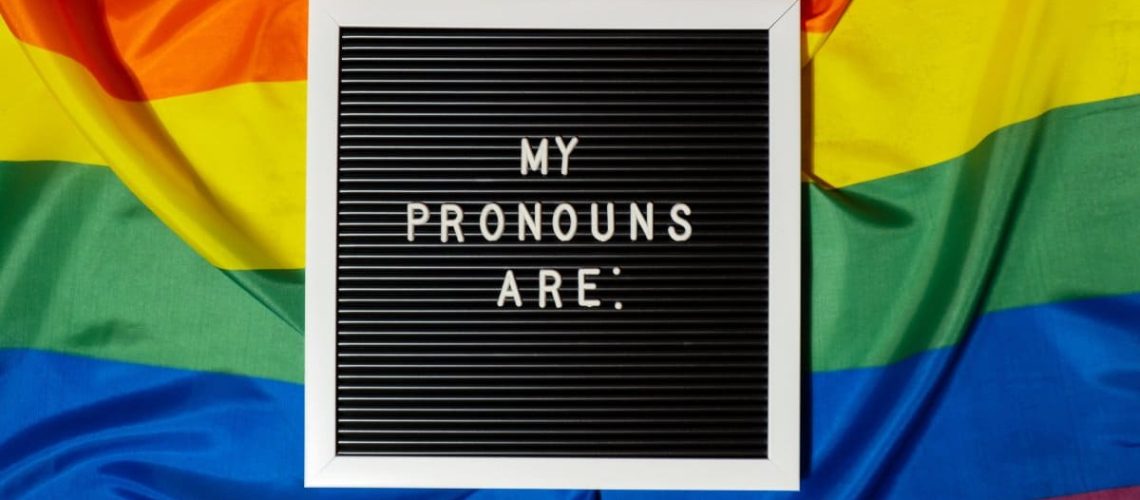It may be falsely assumed that being non-binary is a new phenomenon that only resonates with a small group of people. However, around 1.2 million adults in the US identify as nonbinary. A large percentage of this demographic is under the age of 30.
Young and Eager

This means most non-binary individuals are early on in their professional work life. And while discriminating against queer people is protected by law in most states, the data seems to suggest non-binary people face a unique challenge.
Research Shows

Research conducted by Business.com discovered prejudice against genderqueer individuals both during job searches and in the work environment. Preliminary surveys of nonbinary individuals uncovered that 80% believed their gender identity would hamper their job hunt.
Following Up

Business.com produced a follow up experiment to test if these claims hold any water. The project centered around submitting two nearly identical resumes to over 150 open job applications.
A Noticeable Difference

The only difference being that one resume included they/them pronouns to ensure their identity was respected. Business.com reported that the resume with they/them pronouns attracted less attention and fewer interview offers.
The Data Says

The report also notes that while there was a fair amount of rejection, most of the companies claimed to offer a gender equality value in their practices. However, the non-binary applications appeared 7% less qualified for the position and 4% less likely to be offered an interview.
Asking for Feedback

Looking for clarity, researchers contacted hiring managers to understand why the discrepancy was occurring. Of those managers who responded, many were found to be hesitant to work with applicants whose resumes included any form of pronouns outside the binary.
Unstable Job Market

The results of this study are quite concerning given the current job market. With widespread layoffs and unstable workflow, those outside the gender spectrum may endure hardship in finding new employment opportunities.
Defining Non-Binary

It can be difficult to label a social construct like gender, but some have done their best. Non-binary, as defined by the Human Rights Campaign, includes anyone who doesn’t solely identify as male or female.
A Legal Need

While it may not be the best working definition, having an outline is critical. Doing so allows for certain legal protections for any legislation that might be passed. It also leaves a degree of vagueness, permitting various genders to exist under one set definition.
Open in the Workspace

This study not only highlights a level of discrimination against genderqueer folk, but also confirms a fear that these individuals have about being open in the work space. There will no doubt be more than a few who hide their identity to cultivate employment stability.
Picking Poisons

The situation becomes a double-edged sword. Some may think that sharing their gender expression during the hiring process could aid in weeding out biased employers. On the other hand, some may fear persecution by employers with traditional or religious values.
The Root of the Problem

The experiment ran by Business.com was inspired by other cases exploring racial bias during the hiring process. The rising amount of case-studies such as these emphasizes that there is a growing interest in how intersectionality is being practiced by modern companies.
Real Diversity

Many companies, in recent years, have been adding details on their websites about their efforts to further diversity. However, there is speculation that this is more of an attempt to appear up to date with progressing social attitudes, rather than genuine acceptance.
A Technological Failure

Another key area of concern is the emerging use of AI. Artificial intelligence has gained traction as being a low effort method to speed up the hiring process. These systems can be programmed effectively, but they also house any human bias not deliberately corrected.
What’s the Problem?

Subsequent research evidence suggests that these systems have not been taught efforts to be inclusive or diverse. For those playing devil’s advocate, it may rather suggest that companies require specific structures for resumes, and any deviation may be flagged as a poor candidate.
Moving Forward

It is absolutely vital that companies address any form of bias found in their work processes. This rings especially true for those who claim to value intersectional voices being employed at their company. This will require a great deal of effort, but will be worth the payoff in the long run.
The post ‘They/Them’ Pronoun Users Are LESS Likely to Be Hired first appeared on Pulse of Pride.
Featured Image Credit: Shutterstock / yanishevska.
For transparency, this content was partly developed with AI assistance and carefully curated by an experienced editor to be informative and ensure accuracy.

